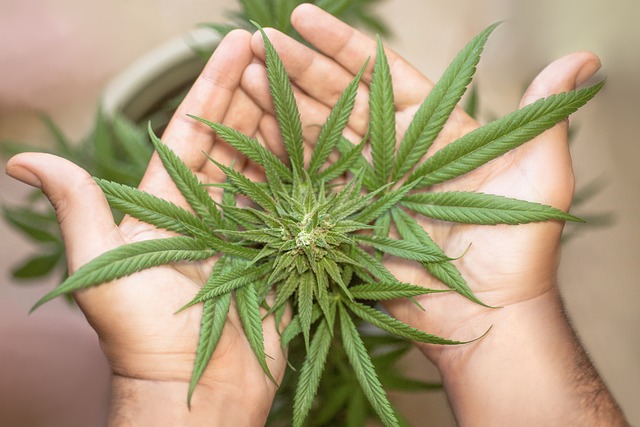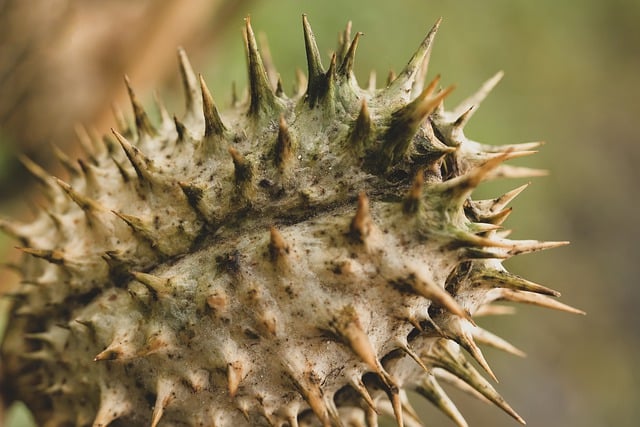Connecticut's legislature has updated laws to legally recognize THCA (Tetrahydrocannabinolic Acid), a non-psychoactive cannabinoid found in raw cannabis, making it accessible for consumers interested in its potential health benefits. With the legalization of hemp-derived products with less than 0.3% THC, residents can now explore THCA's anti-inflammatory and neuroprotective properties without the psychoactive effects associated with Delta-9 THC. Studies are examining THCA's applications, including its potential to inhibit cancer cell growth in vitro and engage with CB1 and CB2 receptors for inflammatory condition management. This move reflects a commitment to providing informed choices regarding health and wellness, with an emphasis on the scientifically supported benefits of THCA within legal frameworks. The distinction between THCA and its decarboxylated form, Delta-9 THC, is significant, as THCA is now legally recognized in Connecticut, offering consumers a psychoactive-free option for potential medical benefits. This development underscores the importance of ongoing research into cannabinoids and their diverse effects, with THCA's legal status in Connecticut marking a step forward in understanding its therapeutic potential.
exploration into the therapeutic and wellness benefits of THCA (Tetrahydrocannabinolic Acid) flower, a non-psychoactive cannabinoid found in hemp and cannabis plants, is gaining momentum. As legal landscapes evolve, Connecticut residents are discovering the potential of THCA, a compound that promises a range of health benefits without the traditional ‘high’ associated with Delta-9 THC. This article delves into the science, consumption methods, legal nuances, and future prospects of THCA flower within the state. From understanding how to legally incorporate it into your wellness routine to recognizing its therapeutic properties, we’ll navigate the entourage effect, cultivation practices, and market trends that make THCA a compelling option for those seeking alternative health solutions in Connecticut.
- Unlocking the Potential of THCA Flower: A Legal Option in Connecticut
- The Science Behind THCA: What Makes It Beneficial?
- THCA Flower vs. Delta-9 THC: Understanding the Differences
Unlocking the Potential of THCA Flower: A Legal Option in Connecticut

Connecticut’s recent legislative updates have paved the way for consumers to legally explore the potential benefits of cannabinoids, including THCA (Tetrahydrocannabinolic Acid), a non-psychoactive precursor to THC found in raw cannabis flowers. The legalization of hemp-derived products with less than 0.3% THC has opened up avenues for individuals within the state to incorporate THCA flower into their wellness routines without the psychoactive effects typically associated with its counterpart, THC.
THCA is gaining recognition for its potential therapeutic properties. Unlike THC, THCA does not induce a high and can be consumed in various forms, including smoked or vaporized flowers. Preliminary research suggests that THCA may offer a range of benefits, including anti-inflammatory and neuroprotective effects, without the psychoactive impact. In Connecticut, where the legal landscape is favorable for such products, residents now have access to these potential wellness options. As interest in cannabinoids grows, so does the scientific community’s investigation into their various applications, providing more insight into how THCA flower might contribute positively to one’s health and well-being within a legal framework that respects and supports consumer choice.
The Science Behind THCA: What Makes It Beneficial?

Delta-9 tetrahydrocannabinol (THC) is well-known for its psychoactive effects, but before it undergoes decarboxylation through heating, it exists in a form known as tetrahydrocannabinolic acid A (THCA). THCA is non-psychoactive and holds therapeutic potential that scientists continue to explore. Preliminary research suggests that THCA interacts with the body’s endocannabinoid system, potentially offering benefits such as anti-inflammatory, anti-nausea, anti-anxiety, and neuroprotective properties without the psychoactive effects associated with THC.
In Connecticut, where the legal status of cannabis derivatives varies, THCA remains a subject of ongoing legislative and scientific interest. While the full spectrum of benefits is still under investigation, early evidence indicates that THCA may be beneficial for various conditions. For instance, studies have found that THCA could inhibit the growth of certain types of cancer cells in vitro, although more research is needed to confirm these effects in humans. Additionally, THCA’s interaction with the body’s CB1 and CB2 receptors may contribute to its anti-inflammatory properties, making it a potential candidate for managing inflammatory diseases within the scope of the law in Connecticut. As legal frameworks evolve, the scientific community is poised to uncover more about THCA’s benefits and how they can be harnessed for wellness and medical applications.
THCA Flower vs. Delta-9 THC: Understanding the Differences

Cannabis enthusiasts and researchers have long been intrigued by the differences between THCA flower, or tetrahydrocannabinolic acid, and its decarboxylated form, Delta-9 THC. Both compounds are found in the cannabis plant but exhibit distinct effects and properties. THCA is the raw, acidic form of THC that is present in harvested cannabis flowers. It’s legal in states like Connecticut, where cannabis with a THC concentration of up to 0.3% or less is permissible under federal guidelines. In its natural state, THCA does not produce psychoactive effects; it’s only when this compound is heated that it decarboxylates into Delta-9 THC, the form commonly associated with the ‘high’ experienced by users.
Delta-9 THC, on the other hand, is the primary psychoactive component of cannabis. It is what most people refer to when discussing marijuana’s effects. The differences between THCA and Delta-9 THC are not only in their psychoactive properties but also in their potential therapeutic applications. THCA has been studied for its potential anti-inflammatory, neuroprotective, and pain-relieving qualities, which may make it a subject of interest for those seeking the benefits of cannabis without strong psychoactive effects. In contrast, Delta-9 THC is known for its broad range of effects, including pain relief, mood enhancement, and appetite stimulation. Understanding these differences is crucial for consumers, patients, and researchers as they navigate the complex landscape of cannabinoids to find the most suitable options for their needs.
Connecticut’s recent legislative changes have paved the way for residents to explore the potential wellness benefits of THCA flower, a non-psychoactive form of cannabis that is gaining attention for its therapeutic properties. The article has delved into the scientific underpinnings of THCA, elucidating its unique advantages over delta-9 THC. As we’ve seen, THCA’s potential benefits are vast and varied, offering a legal avenue for those interested in cannabinoid wellness. Residents curious about incorporating THCA flower into their health regimen can now do so with confidence, guided by the scientific insights provided herein. With further research likely to unveil additional benefits of THCA, its status as a legal option in Connecticut positions the state at the forefront of cannabis wellness innovation.
